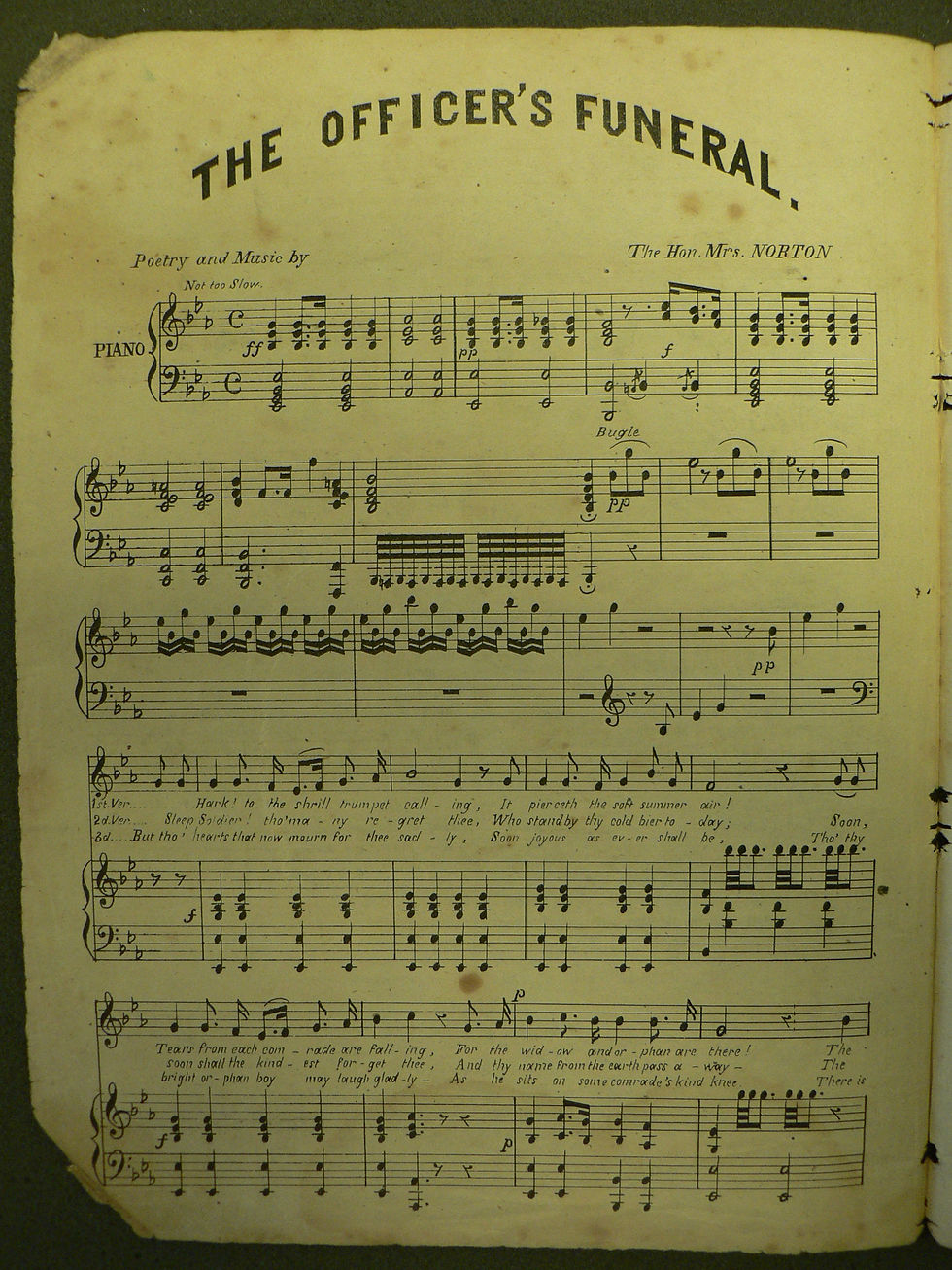
Special Thanks to the University of Illinois, The Rare Book and Manuscript Library, The Sousa Archives and Center for American Music, and the Graduate School of Library and Information Science.
Women as Creators of Civil War Music
Antebellum America expected women to be many things: mother, wife, protector and mourner among others. It is rare indeed that this list of vocations include composer or lyricist, especially as a profession. Nineteenth century social standards dictated that a woman’s abilities as a musician were noble pursuits, only to be used in the privacy of the home. Entertaining guests with pretty songs and poetry was expected, but extending this talent outside of their residence was not acceptable in polite society. Those considered well-bred attended operas and performances, but behaviors of women at these events were to be demure and respectable. Although women performers were popular attractions, such as Jenny Lind and Anna Bush, protecting her ‘reputation’ was important above all things, even her craft. The Civil War marked a great change in this process as women began publishing and noting musical successes on their own terms. We look at examples here of women contributing as lyricist and composer during the Civil War period and contrast these productions to the expectations often expressed by society and by numerous other songs circulating the nation at the time. These creations are emotive, rousing and indicative of the talent women composers had, and continue to have, even after the conflict ended.












General Beauregard's Grand March, Mrs. V.G. Cowdin
General P.G.T. Beauregard was a common and oft praised war hero in Southern music and poetry. Adding to this tradition is “General Beauregard’s March”, primarily played as a piano composition. For the time, it was rare for women to proudly display their names on published, making Cowdin a unique musician in particular. The song, containing scalar flourishes and syncopated rhythms is also one of few examples of marches written by women for military purpose.
Officer's Funeral, Hon. Mrs. Norton
As an Englishwomen in the Confederate South, Norton represents Southerners embracing ‘foreign’ music of the time. Adding to this mystique is Norton’s past as a suffragist and leader in divorce reform in England. Such behavior would be a shock to Southern sensibilities, but Norton continued with “The Officer’s Funeral”, which was highly distributed all over the U.S. Published between 1860 and 1861, this song was entirely composed by Norton, another rarity, and features both piano and bugle arrangements. It too is sentimental, considering the mournful soldier and the family he has left behind. Like most eulogies, this song extols the virtues of the fallen, as both friend and brother, and harkens to the duty that most Southerners personally avowed to fulfill when war broke.
Dying Camille, Julia Daly,
A popular entertainer of the South, Julia Daly wrote the lyrics to “Dying Camille”. This particular copy is dedicated to Matilda Heron, an actress best known for staging and acting in an adaptation of a Dumas novel called Camille of the time. Sentimental and sad, this song captures the emotion of a rebel nation with hopes unrealized.